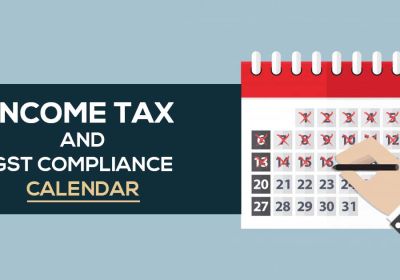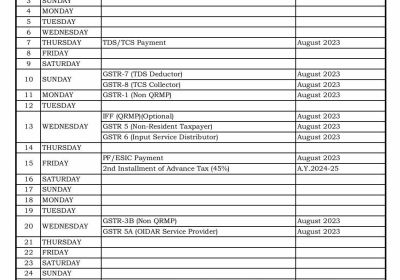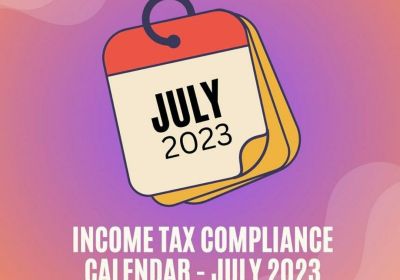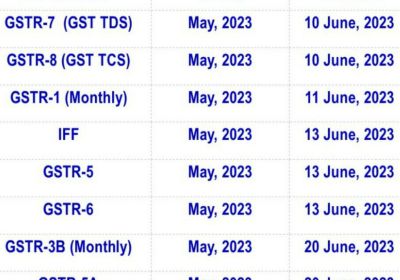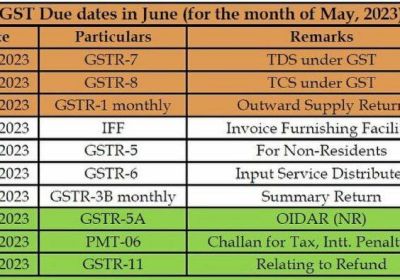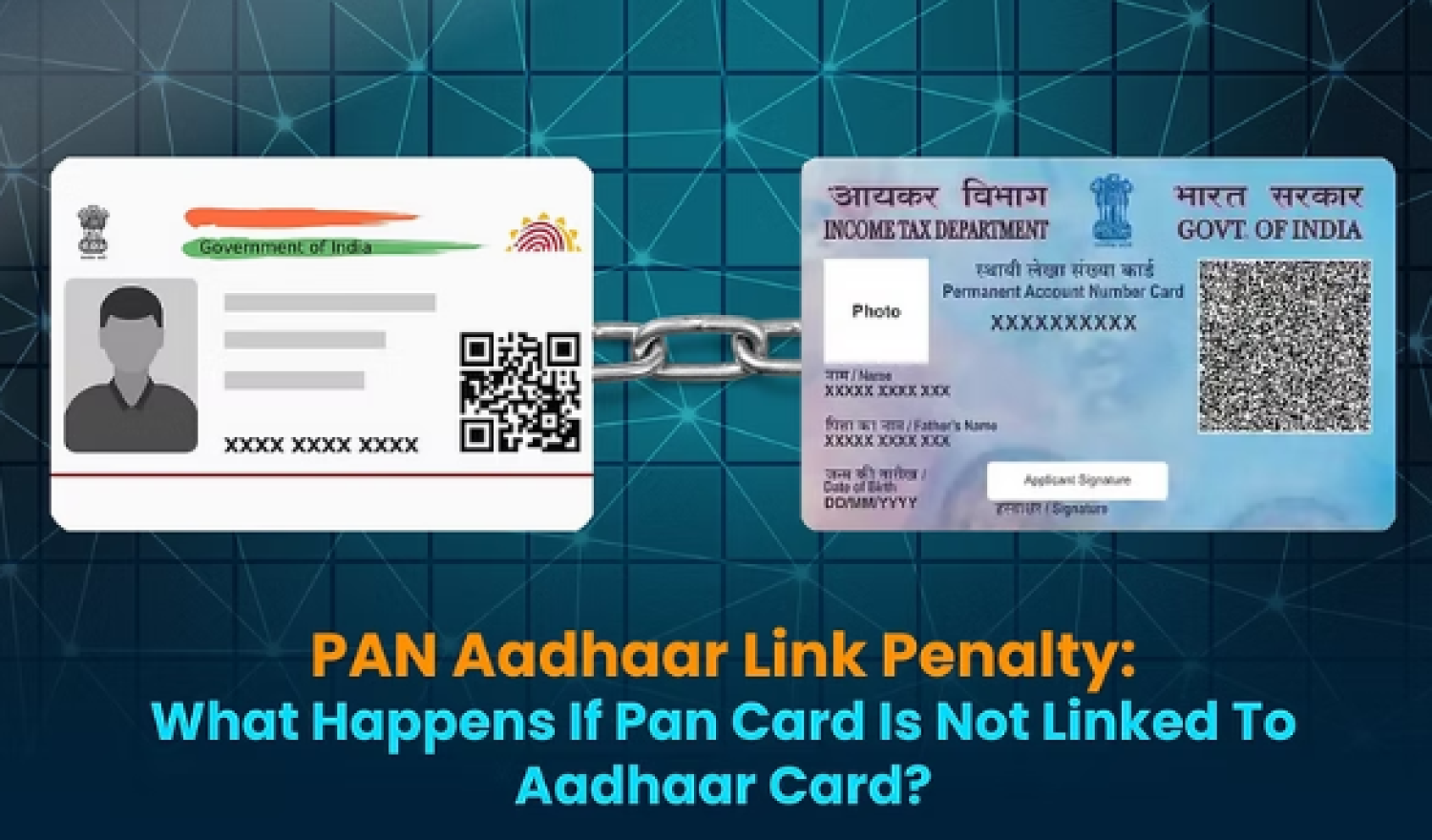Table of Contents

Listing of Non-Convertible Debentures by Private Companies
BRIEF INTRODUCTION
The most important step for a corporate entity to begin with its operations is funding. Funding is something that is required, not only for investment and expansion purposes but also for day-to-day operations. Companies, while looking for funding, consider various sources like debt financing, equity, venture capital, bonds etc. Out of these, debt financing seems to be the most promising source. Debt financing involves fundraising by issuing different types of bonds, debentures, bills or notes. As compared to equity, debt seems to be a lower cost of finance and it also helps in lowering the tax liability of the company, since the payment of interest on the debt is a tax-deductible expense. Debt only creates an obligation of payment in the form of interest and does not involve sharing of profits of the company, thereby helping in more retained earnings for the company. Debt is a good option of finance, as long as the company is in a good financial position.
Debentures have been defined under Section 2(30) of the Companies Act, 2013, as the debenture stock, bonds or any other instrument, that are issued by a company evidencing a debt, whether creating a charge on the assets or not.
A Private Company is a company that is restricted from transferring the rights in the shares, limits the maximum number of members to two hundred and prohibits any invitation to the public for the subscription of any securities of the company.
Non-Convertible Debenture is a type of debenture issued by a company, which cannot be converted into the prescribed amount of equity shares after a specified period and are required to be redeemed after the expiry of the period for which they were issued. Debentures being a debt instrument, do not carry any voting right, as provided to the shareholders.
NON-CONVERTIBLE DEBENTURES
There is a type of debenture, issued by a company, which after a period of time is converted into a specified number of shares, after a particular period and at the discretion of its holder. Where the debentures are not subject to any conversion, they are said to be known as Non-Convertible Debentures. NCD is termed a fixed-income instrument and is issued only by high rated companies looking to accumulate long term capital appreciation.
NCD’s helps in facilitating long term funds for companies and is raised through public issue or through lenders who are generally given a higher rate of interest in comparison to convertible debenture holders.
Who can issue Non-convertible Debentures?
ISSUING COMPANY
NCD’s could be issued only by corporates fulfilling the following conditions –
- The corporate entity has a net worth of at least Rs 4 crores, as per the latest audited financial statements.
- The entity must have obtained approval in respect of working capital limit or term loan, by banks or All India Financial Institutions.
- The borrower account of the corporation is under the category of standard asset by the financing banks.
MATURITY GUIDELINES
- The maturity period of NCDs issued by a company, shall not be less than 90 days or the validity period of the credit rating of the instrument, from the date of issue. However, the exercise date of any option (put/call) attached to the NCDs shall not be considered in the above 90 days.
- The total amount of NCDs issued shall be the lower of, the limits prescribed and approved by the Board of Directors of the said corporate entity or the quantum of NCD indicated by the Credit Rating Agency for the rating granted.
- The amount of the NCDs proposed to be issued, shall be completed within two weeks from the date of opening of the issue.
ISSUANCE OF DEBENTURE BY PUBLIC COMPANY
A Public Company may issue debentures to raise funds and the same can be done either through Private Placement or through public issues by inviting the general public to subscribe to its debentures.
PREFERENCE OVER OTHER SOURCES
- Debentures are the most promising source of funds because they do not lead to dilution of control and voting in the company, as they do not carry any voting right.
- Apart from control and voting, another advantage is that the interest payment on these debentures is tax-deductible i.e., the amount of tax to be paid, is deducted from the profit before tax, thus reducing the tax liability of the company.
TYPES OF DEBENTURES
BASIS |
NON-CONVERTIBLE |
CONVERTIBLE |
||
UNSECURED |
SECURED |
UNSECURED |
SECURED |
|
|
REDEMPTION/CONVERSION PERIOD |
REDEEMABLE WITHIN 20 YEARS AS PER RULE 18(1)(A) OF COMPANIES (SHARE CAPITAL AND DEBENTURES) RULES, 2014. |
REDEEMABLE WITHIN 20 YEARS AS PER RULE 18(1)(A) OF COMPANIES (SHARE CAPITAL AND DEBENTURES) RULES, 2014. |
CONVERTIBLE WITHIN 10 YEARS AS PER RULE 2(1)(C) OF COMPANIES (ACCEPTANCE OF DEPOSITS) RULES, 2014. |
CONVERTIBLE WITHIN 10 YEARS AS PER RULE 2(1)(C) OF COMPANIES (ACCEPTANCE OF DEPOSITS) RULES, 2014. |
|
SPECIAL RESOLUTION FOR ISSUANCE |
REQUIRED ONLY IF THE LIMIT EXCEEDS, AS PRESCRIBED UNDER SECTION 180(1)(C) |
SPECIAL RESOLUTION IS MANDATORY |
SPECIAL RESOLUTION MANDATORY AS PER SECTION 71(1) OF COMPANIES ACT, 2013 |
SPECIAL RESOLUTION MANDATORY AS PER SECTION 71(1) OF COMPANIES ACT, 2013 |
|
PRIVATE PLACEMENT /PREFERENTIAL ALLOTMENT |
PRIVATE PLACEMENT IS ALLOWED UNDER SECTION 42 OF THE COMPANIES ACT, 2013 |
PRIVATE PLACEMENT IS ALLOWED UNDER SECTION 42 OF THE COMPANIES ACT, 2013 |
PREFERENTIAL ALLOTMENT ALLOWED SECTION 62(1)(C) AND PRIVATE PLACEMENT UNDER SECTION 42 OF COMPANIES ACT, 2013 |
PREFERENTIAL ALLOTMENT ALLOWED UNDER SECTION 62(1)(C) AND PRIVATE PLACEMENT UNDER SECTION 42 OF COMPANIES ACT, 2013 |
MAIN PROVISIONS FOR ISSUANCE OF NON-CONVERTIBLE DEBENTURES
Section 71 of the Companies Act, 2013 and rule 18 of Companies (Share Capital & Debenture) Rules, 2014, provides for provisions relating to the issuance of NCDs. These provisions are –
- The Board of Directors of the company have the right to issue NCDs, which will be approved by the passing of the resolution.
- The debentures to be issued shall not carry any voting rights.
- Where the debentures involve the issuance of secured debentures, their redemption period should be a maximum of up to twenty years from the date of issue otherwise the same would be considered as deposits. However, in case the company is in infrastructure projects, the redemption period of said debentures will be thirty years, provided the company starts redeeming at least 10% of debentures from the 21st year onwards.
- Secured debentures will be secured against the properties or assets of the company, generally, having a pretty good margin to cover the amount of debt. Also, the company needs to file Form CHG-9, with the registrar of companies for the creation of charge on its assets.
- At the time of issuance of debenture, the company needs to create a debenture redemption reserve account out of the profits of the company available for payment of dividend and the amount credited to such account shall be utilized only for the redemption of debentures.
- Debentures can be issued to a maximum of five hundred persons unless the company appoints a debenture trustee, whose primary duty would be to protect the interest of debenture holders and redress their grievances.
- A company is required to pay interest and redeem the debentures in accordance with the terms and conditions as prescribed in the offer document. It is noted that a company can issue debentures at a zero per cent interest rate.
- Where a company fails to redeem the debentures on the date of their maturity or fails to pay interest on the debentures, shall on the order of the tribunal, issue new debentures for redemption and interest amount.
PROCEDURE FOR ISSUANCE OF NON-CONVERTIBLE DEBENTURES
It is to be noted that the debentures whether secured or not, shall be listed on the recognised stock exchange. Also, as per Schedule-I of SEBI (Issue and Listing of Debt Securities) Regulation, 2008, the company is required to provide disclosure for the creation of charge, along with the Listing application.
PROVISIONS APPLICABLE
- Section 42 Section 71 of the Companies Act, 2013 along with the Companies (Prospectus and allotment) Rules, 2014.
- Provisions prescribed under the SEBI (Listing Obligations and Disclosure Requirements) Regulations, 2015.
- Provisions applicable under SEBI (Issue and Listing of Debt Securities) Regulations, 2008.
- Conditions and provisions required to be complied in fund raising for issue of Debt instruments by Large Corporate Entities.
- Use of Electronic book mechanism for the issuance of Debt Securities under the Private Placement basis.
- SEBI (Debenture Trustee) Regulation, 1993.
- Depositories Act, 1996 and any other regulation as applicable depending on the type of entity.
- Stamp Act, 1899.
Private placement means providing an offer or invitation to subscribe or issue the securities to a selected group person, identified by the Board (other than by way of public offer) through private placement offer-cum-application. There are certain provisions related to the private placement, these are -
- Private Placement of each kind of securities is issued to a maximum of 200 persons, in a financial year, excluding the qualified institutional buyers and employees issued securities under the employee stock option scheme.
- The offer shall be authorized by the articles of association of the company and be approved by the shareholders by passing a special resolution.
- The company shall issue an offer cum application letter in form PAS-04, properly numbered and addressed specifically to the persons identified by the board as the selected persons and the same be provided, either in writing or by electronic mode, within 30 days of recording of the name of such person.
- All the monies to be received on the application of such securities shall be kept in a separate bank account, opened with a scheduled bank.
- The company is required to allow the securities to eligible persons, within 60 days from the date of receipt of the application money. However, if the company fails to allot the securities within the stipulated time, the company is required to refund the subscription money within 15 days from the expiry of sixty days and in case of any delay, the said amount be refunded, along with an interest of 12% p.a. after the expiry of the sixtieth day.
- The company, after making the allotment, needs to file a return of allotment along with the complete list of allottees, with the Registrar, within 15 days from the date of allotment in Form PAS-3.
- The company is required to maintain a register of private placement in Form PAS-5.
STEP BY STEP PROCEDURE
STEPS |
PARTICULARS |
PROVISION |
TIMELINE |
|
1. |
INTIMATION TO STOCK EXCHANGE BEFORE BOARD MEETING |
REGULATION 29(1)(D) OF SEBI (LODR), 2015 |
AT LEAST 5 DAYS PRIOR |
|
2. |
CONSENT FROM CREDIT RATING AGENCY, DEBENTURE TRUSTEE AND RTA. |
|
|
|
3. |
BOARD MEETING WITH THE FOLLOWING AGENDAS -
|
SECTION 42, 71, 172 |
– |
|
4. |
INTIMATION TO STOCK EXCHANGE ABOUT THE DETAILS OF BOARD MEETING |
REGULATION 30 OF SEBI (LODR), 2015 |
WITHIN 30 MINUTES AFTER THE MEETING ENDS |
|
5. |
FINALIZATION OF MCF AND CREATION OF ISIN FINALIZE TERM SHEET WITH DEBENTURE TRUSTEE |
|
|
|
6. |
OBTAINING IN-PRINCIPAL APPROVAL FOR LISTING OF DEBT SECURITIES ON STOCK EXCHANGE |
|
|
|
7. |
FILING OF FORM MGT-14 WITH ROC, FOR THE ISSUE OF DEBENTURES |
SECTION 179(3) OF COMPANIES ACT, 2013 |
WITHIN 30 DAYS OF PASSING THE BOARD RESOLUTION |
|
8. |
OPENING OF BANK ACCOUNT WITH A SCHEDULED BANK |
|
|
|
9. |
FINALIZE AND ISSUE THE OFFER LETTER IN FORM PAS-4, ALONG WITH THE APPLICATION FORM TO THE ADDRESS OF THE SELECTED. MAINTAIN RECORD OF OFFER LETTER POSTED TO SELECTED PERSONS IN THE FORM PAS-5.
|
SECTION 42(3) READ WITH RULE 14 (3) OF COMPANIES (PROSPECTUS AND ALLOTMENT OF SECURITIES) RULES, 2014 |
WITHIN 30 DAYS OF RECORDING OF NAMES
|
|
10. |
RECEIVING THE SUBSCRIPTION AMOUNT FROM THE NEWLY OPENED BANK ACCOUNT AND MAINTAIN THE RECORD OF THE BANK ACCOUNT FROM WHERE SUCH PAYMENTS FOR SUBSCRIPTIONS HAVE BEEN RECEIVED.
|
SECTION 42(4) READ WITH RULE 14(5) OF COMPANIES (PROSPECTUS AND ALLOTMENT OF SECURITIES) RULES, 2014 |
|
|
11. |
ALLOTMENT OF NCDs TO THE RESPECTIVE APPLICANTS IN DEMATERIALIZED FORM. |
SECTION 42, 71, 173 AND SS-1 |
|
|
12. |
INTIMATION TO STOCK EXCHANGE ABOUT THE ISSUANCE OF THE NCDs |
|
|
|
13. |
FILING OF RETURN OF ALLOTMENT IN FORM PAS-3, WITH THE REGISTRAR. |
SECTION 42(8) READ WITH RULE 14(6) OF COMPANIES PROSPECTUS AND ALLOTMENT OF SECURITIES) RULES, 2014 |
WITHIN 15 DAYS OF ALLOTMENT OF DEBENTURES |
|
14. |
FILING OF PARTICULARS OF CHARGES CREATED IN FORM CHG-9 |
SECTION 77(1), 79 READ WITH RULE 3 OF COMPANIES (REGISTRATION OF CHARGES) RULES, 2014 |
WITHIN 30 DAYS OF CREATION OF CHARGE |
|
15. |
ENTERING OF DETAILS RELATED TO CHARGE CREATED, IN THE REGISTER MAINTAINED. |
SECTION 85 READ WITH RULE 10 OF COMPANIES (REGISTRATION OF CHARGES) RULES, 2014 |
|
|
16. |
PAYMENT OF STAMP DUTY ON ISSUANCE OF NCDS @ 0.005 % |
|
|
|
17. |
ISSUANCE OF DEBENTURE CERTIFICATE, TO RESPECTIVE APPLICANT, IN FAVOUR OF NSDL. |
|
|
|
18. |
EXECUTION OF DEBENTURE TRUST DEED, WITH THE DEBENTURE TRUSTEE APPOINTED. |
RULE 18(1)(C) & (5) OF THE COMPANIES (SHARE CAPITAL AND DEBENTURES) RULES, 2014 [SECTION 71(5)] |
WITHIN 60 FROM THE DATE OF ALLOTMENT OF DEBENTURES |
|
19. |
CREATION OF ISIN AND CORPORATE ACTION FOR CREDITING THE NCDS IN THE DEMAT ACCOUNT OF INVESTORS. |
SECTION 29 WITH RULE 9A OF COMPANIES RULES, 2014 |
|
|
20. |
APPLICATION TO STOCK EXCHANGE FOR THE LISTING OF NCDs. |
|
|
STAMP DUTY ON NCD
As per the provisions of the Indian Stamp Act, 1899, where any company issues NCD to any person, the same shall be liable to a stamp duty @ 0.005%, while in case of transfer and re-issue of debentures, the said rate is 0.0001%.
ISSUANCE OF NCD UNDER SEBI REGULATIONS,2008
Under the provision of SEBI Regulation, 2008, a company issuing NCD needs to comply with the following conditions –
- An application for listing of NCD, along with the relevant disclosures as specified, shall be submitted to the recognized stock exchange within fifteen days from the date of allotment of such securities.
- NCDs issued should be in compliance with the provisions of the Act, rules applicable.
- Credit rating is required to be obtained, from at least one credit rating agency registered with the Board, in respect of the securities issued.
- The securities should be issued only in dematerialized form.
- In case the company is listed on more than one stock exchange, the board is required to choose any one of them as the designated stock exchange.
- The company needs to comply with the conditions as specified in the Listing Agreement with the stock exchange where the securities are to be listed.
- The designated stock exchange is required to collect a non-refundable regulatory fee of Rupees 5000 at the time of listing of NCDs issued on a private placement basis.
- They should also comply with the conditions relating to the issue of International Securities Identification Number (ISIN).
SHELF DISCLOSURE DOCUMENT
- A company seeking private placement of NCDs and its listing on a recognized stock exchange may file a shelf disclosure document containing the required disclosures.
- Where such a document is filed, any subsequent filing of the disclosure document for making private placement of NCDs within a period of 180 days from the date of filing of the shelf disclosure document, shall not be required.
- However, within the above period of 180 days, the company shall file an updated disclosure document with the concerned stock exchange, in respect of each tranche of the private placement.
DISCLOSURES WITH STOCK EXCHANGE
A company making an application for listing of its securities on a stock exchange is required to disclose the following information, along with the listing application –
- A brief history of the company providing information related to its incorporation, Memorandum of Association and Articles of Association and other necessary resolution(s) for the allotment of the NCDs.
- Duly attested copy of audited annual reports of the company for the three years immediately preceding the year of issue.
- A statement containing the particulars of the persons selected and the period of allotment and other material contracts and agreements.
- Copy of the resolution passed by the Board/Committee, authorizing the borrowing and list of authorized signatories to the resolution.
- An undertaking from the company stating that the company will execute the necessary documents for the creation of the charge and the Trust Deed, within the time frame prescribed in the relevant regulations/act/rules etc.
- The company shall also submit the latest audited/limited review half-yearly and consolidated financial information and auditor’s qualification.
- Also, a brief summary of the business of the issuer including the information relating to the line of business, its overview, corporate structure, key operational and financial parameters during the last 3 years and projects cost and means of financing.
- Summary term sheet containing information of the Non-Convertible Debt Securities.
- Disclosures by the managing persons in relation to wilful defaults.
OTHER PROVISIONS
- Apart from the above disclosures, the company is also required to provide an undertaking in the Information Memorandum, that the assets on which charge is created are free from any other encumbrances and in cases where the charge is already created on an asset, the requisite permission or consent to create a second or Pari-passu charge on the said assets has been obtained from the earlier creditor.
- The NCDs issued on a private placement basis, and are listed on a recognized stock exchange, shall be traded, cleared and settled on such recognized stock exchanges subject to conditions specified by the Board.
- Where the trading of NCD takes place over the counter, the company is required to report such trades to the stock exchange having a nationwide trading terminal or such other platform as may be specified by the Board.
CONDITIONS FOR CONTINUOUS LISTING
- All conditions for the listing of securities as specified in the respective listing agreement for NCDs needs to be complied with.
- The rating of such NCDs to be periodically reviewed by the registered credit rating agency and any revision thereon shall be promptly disclosed to the respective stock exchange(s).
- The issuer, the debenture trustees and stock exchanges shall disseminate all information and reports on the NCDs, including compliance reports, to the investors and the general public by publishing the same on the company’s websites.
- Debenture trustees shall disclose all the material information to the investors and the general public by issuing a press release and the same be done where there is a default to pay interest or redemption amount or failure to create a charge on the assets or revision of rating assigned to NCD.
PROCEDURE FOR LISTING OF NCD
- First of all, obtain the electronic connectivity from the Depository Participant.
- Then obtain the credit rating from one of the recognized credit rating agencies, registered with the board of the company.
- File an application with one or more stock exchanges for the listing of NCDs and obtain in-principal approval.
- Make the appointment of debenture trustee and execute a debenture trust deed.
- Obtain the in-principle approval from the stock exchanges.
- File an application for listing along with a disclosure document with the stock exchange post allotment of NCDs.
EGB PLATFORM
It is to be noted that all the Private Placement of debt securities like NCD and NCRPS are made through the EGM Platform. There are certain conditions for securities to be issued through the EBM platform. These are –
- A single issue, including the greenshoe option, if any, amounts to INR 200 Crore or more, in a given FY.
- A shelf issue involving multiple tranches, and whose cumulative amount is of INR 200 Crore or more, in a given FY.
- Any subsequent issue, where the Total of all previous issues in an FY by the same issuer, amounts to INR 200 Crore, or more.
DOCUMENTS FOR IN-PRINCIPLE APPROVAL
SERIAL NO. |
DOCUMENTS |
|
1. |
COVER CUM REQUEST LETTER |
|
2. |
OFFER LETTER ALONG WITH INFORMATION MEMORANDUM AND THE COPY OF THE DISCLOSURES AS REQUIRED BY REGULATIONS 21. (IN HARD AND SOFT COPY IN PDF FORMAT) |
|
3. |
RATING DOCUMENT CONTAINING THE CREDIT RATING CERTIFICATE OF THE PROPOSED ISSUE. |
|
4. |
CONFIRMATION/CONSENT LETTERS FROM THE DEBENTURE TRUSTEE |
|
5. |
LATEST MEMORANDUM OF ASSOCIATION AND ARTICLES OF ASSOCIATION |
|
6. |
COPY OF AUDITED ANNUAL FINANCIAL STATEMENTS FOR THE PREVIOUS YEAR |
|
7. |
CONFIRMATIONS OF COMPLIANCES WITH THE PROVISIONS OF REG. 24 OF THE SEBI DELISTING REGULATIONS, 2009 |
COMPLIANCES REQUIRED
-
TIME-BASED COMPLIANCE
SERIAL NO. |
COMPLIANCE PARTICULATES |
REGULATION |
DUE DATE |
|
1. |
GRIEVANCE REDRESSAL MECHANISM (SEBI SCORE) |
13 |
WITHIN 21 DAYS FROM THE END OF EACH QUARTER
|
|
2. |
LISTING FEES TO STOCK EXCHANGE |
14 |
WITHIN 30 DAYS FROM THE END OF THE FINANCIAL YEAR |
|
3. |
SUBMISSION OF HALF-YEARLY UNAUDITED OR AUDITED FINANCIAL RESULTS WITH THE LIMITED REVIEW BY THE AUDITORS |
52(1) |
WITHIN 45 DAYS FROM THE END OF THE HALF-YEAR. |
|
4. |
INTIMATION FOR OPTING OUT FROM SUBMITTING THE UNAUDITED RESULT FOR LAST QUARTER. |
52(2)(A) |
ADVANCE INTIMATION TO BE SENT TO THE STOCK EXCHANGES PROVIDING FOR SUBMISSION OF ITS ANNUAL AUDITED RESULTS WITHIN SIXTY DAYS FROM THE END OF THE FINANCIAL YEAR |
|
5. |
PUBLICATION OF FINANCIAL RESULTS IN THE ENGLISH NATIONAL DAILY NEWSPAPER CIRCULATING IN THE WHOLE OR SUBSTANTIALLY THE WHOLE OF INDIA |
52(8) |
WITHIN 2 CALENDAR DAYS FROM THE CONCLUSION OF THE BOARD MEETING |
|
6. |
OBTAINING DEBENTURE TRUSTEE CERTIFICATE IN COMPLIANCE WITH REGULATION 52(4) |
52(5) |
SUBMITTED ALONG WITH FINANCIAL RESULTS, TO THE STOCK EXCHANGE. |
|
7. |
STATEMENT INDICATING MATERIAL DEVIATIONS IN THE USAGE OF PROCEEDS RAISED FROM THE ISSUE. |
52(7) |
SUBMITTED ON HALF-YEARLY BASIS WITH THE STOCK EXCHANGE |
|
8. |
MAINTAIN OF ASSET COVER TO THE EXTENT AND NATURE OF SECURITY CREATED FOR THE RESPECTIVE NCDS |
54 |
SUBMIT DISCLOSURE IN RESPECT OF MAINTENANCE OF 100% ASSET COVER IN THE HALF-YEARLY OR YEARLY ANNUAL FINANCIAL STATEMENTS, AS APPLICABLE |
|
9. |
CERTIFICATE OF CREDIT RATING |
55 |
ONCE IN A YEAR |
|
10. |
ANNUAL REPORT AND CERTIFICATE FROM THE AUDITORS WITH RESPECT TO UTILIZATION OF FUNDS FOR THE RESPECTIVE NCDS. |
56 |
SUBMIT AT THE END OF EACH FINANCIAL YEAR TILL THE FUNDS HAVE BEEN FULLY UTILIZED. |
|
11. |
UNDERTAKING TO STOCK EXCHANGE FOR COMPLIANCE OF DOCUMENTS TO DEBENTURE TRUSTEE |
57(2) |
AT THE END OF EVERY YEAR. |
2. EVENT-BASED COMPLIANCES
SERIAL NO. |
COMPLIANCE PARTICULARS |
REGULATION |
DUE DATE |
|
1. |
APPOINTMENT OR CHANGE OF ANY COMPLIANCE OFFICER |
6 |
AS AND WHEN SUCH CHANGE TAKES PLACE |
|
2. |
APPOINTMENT OR ANY CHANGE IN RTA |
7(4) |
WITHIN 7 DAYS OF ENTERING INTO THE NEW AGREEMENT |
|
3. |
INTIMATION IN CASE OF PAYMENT OF INTEREST ON DEBENTURES AND BONDS, AND REDEMPTION AMOUNT |
50(1) |
AT LEAST 11 WORKING DAYS BEFORE THE DATE OF PAYMENT |
|
4. |
ISSUANCE OF NEW NCDs |
50(2) |
AT LEAST 2 WORKING DAYS PRIOR TO THE ISSUE |
|
5. |
PRICE SENSITIVE INFORMATION. |
51(1) |
AS SOON AS POSSIBLE |
|
6. |
CERTIFICATE OF TIMELY PAYMENT OF THE INTEREST OR PRINCIPAL OR BOTH |
57(1) |
WITHIN 2 DAYS OF BECOMING DUE |
|
7. |
ANNUAL REPORTS THROUGH SOFT/HARD COPY |
58(1) |
WHEN THE REPORTS ARE GENERATED. BUT FOR HARD COPY, WHEN REQUESTED FOR. |
|
8. |
NOTICE FOR MEETINGS OF HOLDERS OF NCD |
58(2) & (3) |
AS PER THE COMPANIES ACT, 2013 |
|
9. |
PRIOR APPROVAL FROM THE STOCK EXCHANGE FOR MAKING MATERIAL MODIFICATIONS IN THE NCDS |
59 |
AS AND WHEN EVENT TAKES PLACE |
|
10. |
PRIOR INTIMATION TO THE STOCK EXCHANGE FOR RECORD DATE FOR PAYMENT OF INTEREST PAYMENT OF REDEMPTION OR REPAYMENT AMOUNT |
60 |
7 DAYS PRIOR TO THE RECORD DATE. |
CHECKLIST
SR. NO. |
ACTIVITY |
DETAILS |
|
1. |
BOARD MEETING WITH THE FOLLOWING AGENDAS
|
THE OFFER LETTER BE SENT TO THE SELECTED PERSON WITHIN 30 DAYS OF RECORDING OF THEIR NAMES. |
|
2. |
GENERAL MEETING OF SHAREHOLDERS APPROVAL REGARDING THE BORROWING LIMITS, CREATION OF CHARGE AND ISSUANCE OF DEBENTURES. |
FORM MGT -14 TO BE FILED WITHIN 30 DAYS OF PASSING OF SPECIAL RESOLUTION BY THE SHAREHOLDERS. |
|
3. |
DISPATCH OF OFFER LETTER & OPENING OF BANK ACCOUNT THE OFFER LETTER BE SENT AFTER APPROVAL BY THE SHAREHOLDERS AND A SEPARATE BANK ACCOUNT BE OPENED WITH A SCHEDULED BANK |
AN OFFER LETTER SHALL BE SENT WITHIN 30 DAYS OF REGISTERING THE NAME OF THE PROPOSED APPLICANT |
|
4. |
FILING OF OFFER LETTER WITH ROC THE COMPANY SHALL FILE THE OFFER LETTER WITH ROC, WITHIN 30 DAYS OF DISPATCH OF LETTER. |
FORM PAS-4 & PAS-5 AS ATTACHMENT TO GNL – 2 |
|
5. |
RECEIVING SUBSCRIPTION AMOUNT THE COMPANY SHALL RECEIVE THE PROPOSED AMOUNT FOR SUBSCRIPTION IN THE NEWLY OPENED BANK ACCOUNT. |
|
|
6. |
BOARD MEETING ALLOTMENT BE MADE TO RESPECTIVE APPLICANTS WITHIN 60 DAYS FROM CLOSURE OF OFFER. ALONG WITH THIS, DRAFTS THE AGREEMENT FOR THE CREATION OF CHARGE & APPOINTMENT OF TRUSTEE. |
HERE AGREEMENT MEANS THE AGREEMENT IF ANY TO BE ENTERED WITH THE DEBENTURE HOLDER. |
|
7. |
RETURN OF ALLOTMENT TO BE FILED WITH THE ROC, WITHIN 30 DAYS FROM THE DATE OF ALLOTMENT. |
FORM PAS – 3 |
|
8. |
MAINTENANCE OF REGISTER THE DETAILS OF THE OFFER AND ALLOTMENT SHALL BE MAINTAINED BY THE COMPANY IN PAS – 5 |
|
|
9. |
CREATION OF CHARGE AFTER ALLOTMENT OF DEBENTURES, A CHARGE SHALL BE CREATED ON THE ASSETS AND THE RETURN FOR CREATION OF CHARGE SHALL BE FILED WITH ROC WITHIN 30 DAYS OF CREATION OF CHARGE |
FORM CGH – 9 |
|
10. |
ISSUE OF DEBENTURE CERTIFICATE THE COMPANY TO ISSUE CERTIFICATE TO RESPECTIVE HOLDER, WITHIN 6 MONTHS FROM THE DATE OF ALLOTMENT. |
|
IMPACT OF LISTING OF NCD’S
Once a company gets the NCD’s listed on a recognized stock exchange, they would be under the obligation to comply with the provisions of Woman Director as per section 149 of the Act, establishment of Audit Committee and Nomination and Remuneration Committee, implementation of vigil mechanism, the applicability of Secretarial Audit and appointment of KMP’s as per section 203 of the Act. All these provisions will become compulsory for the company to follow, as they shall now be considered as a listed company.
Private Placement Procedure!
CONCLUSION
After discussing all the aspects related to NCD, we can conclude that listing brings in liquidity and readily marketable securities on a continuous basis which thereby helps investors to find a buyer readily available on the market platform. The listing also provides an exclusive privilege and free movement of securities on the stock exchange.




